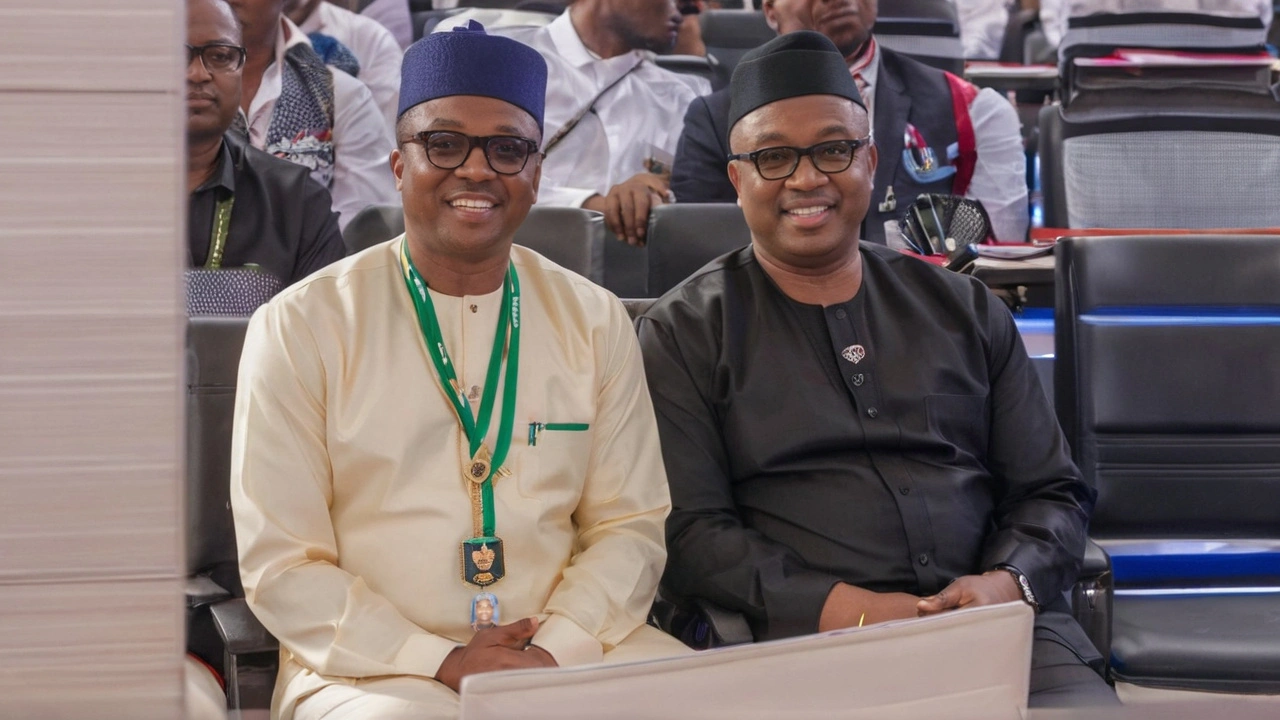Kenneth Okonkwo Severs Ties with Peter Obi Over Waning Confidence
Kenneth Okonkwo, an influential figure in Nigeria's Labour Party (LP), has recently made headlines after announcing that he can no longer support Peter Obi, the party's presidential candidate in the 2023 election. This announcement has sent shockwaves through the political landscape, shedding light on the internal turmoil and dissatisfaction within the LP. Having initially shown robust support for Obi, whom he believed had the potential to invigorate the party and build a substantial base, Okonkwo now finds himself disillusioned by what he perceives as Obi's lackluster performance and strategic missteps.
The turning point for Okonkwo appears to be Obi's perceived lack of support for the Nigeria Labour Congress (NLC) in their efforts to address and resolve internal conflicts within the Labour Party. These conflicts have plagued the party, creating factions and diminishing its effectiveness and appeal to the Nigerian electorate. Okonkwo has been vocal in his criticism, stating that Obi not only failed to engage with the NLC's initiatives but also chose not to distance himself from the Abure-led National Working Committee. The latter body has been a focal point of controversy, with some party members accusing it of clandestine operations and ineffectiveness.
Okonkwo's frustration is palpable. According to him, Obi's reluctance to tackle these issues head-on and his apparent alliance with the contested leadership have undermined the party's integrity and his presumptive role as a leader of change. For Okonkwo, this was the final straw—prompting his decision to part ways with Obi and, perhaps, re-evaluate his position within the LP itself. In a poignant statement, Okonkwo expressed that his lack of confidence in Obi extends beyond internal party affairs. He harbors doubts about Obi's ability to secure a mandate, even if he were to win the popular vote. This skepticism points to a broader concern about Obi's electoral strategy and his capacity to navigate Nigeria's complex political landscape.
Challenging the Status Quo
Okonkwo has always been a firebrand within the Labour Party, unafraid to voice his dissent and challenge the status quo. His criticisms of the party's National Working Committee are well-documented, once describing it as 'a secret society led by a group of clowns.' Such rhetoric underscores his deep-seated frustration with the party's current leadership and organizational structure. Interestingly, Okonkwo has made it clear that his decision to distance himself from Obi is not driven by any intentions to switch allegiances to Nigeria's other prominent parties, such as the All Progressives Congress (APC) or the Peoples Democratic Party (PDP).
This declaration adds a layer of complexity to Okonkwo's position. He appears committed to the ideals and platform of the Labour Party, yet profoundly dissatisfied with its current trajectory and leadership. This suggests that Okonkwo's discontent may lead him to pursue reforms within the party or even to foster a new political movement altogether. His outspoken nature and willingness to call out perceived incompetence resonate with a significant faction of the electorate that craves transparency and accountability in Nigerian politics.
A Potentially Transformative Period
The rift between Okonkwo and Obi could mark a transformative period for the Labour Party. The dynamics at play reflect broader issues within Nigeria's political system, where internal party democracy and leadership accountability often come under scrutiny. For Okonkwo, the importance of a cohesive and supportive party structure cannot be overstated. He firmly believes that without these elements, any efforts to drive meaningful change or achieve electoral success will be stunted.
As political analysts monitor these developments, questions arise about the future of the Labour Party and its place within Nigeria's political arena. Okonkwo's departure from Obi's camp could inspire other party members to reconsider their positions, possibly leading to further fragmentation or, conversely, a push for comprehensive party reforms. The role of the NLC and other allied organizations will be crucial in navigating this period and determining the Labour Party's future direction.
What's Next for Kenneth Okonkwo?
As for Okonkwo, the road ahead may be uncertain, but his commitment to political activism and advocacy for change is unwavering. His decision to withdraw support from Obi is a significant personal and political gamble, but one that underscores his dedication to principles over personalities. Whether this move will lead to a renewed and revitalized Labour Party, or even the birth of a new political movement, remains to be seen. However, one thing is clear: Kenneth Okonkwo's journey in Nigeria's political landscape is far from over, and his actions will undoubtedly leave a lasting mark.


Unnati Chaudhary
July 29, 2024 AT 06:31deepika singh
July 30, 2024 AT 08:02Aniket sharma
July 31, 2024 AT 20:14ankit singh
August 1, 2024 AT 08:23ajay vishwakarma
August 2, 2024 AT 06:51Divya Johari
August 4, 2024 AT 06:07Sreeanta Chakraborty
August 5, 2024 AT 02:46Pratiksha Das
August 5, 2024 AT 13:58Vijendra Tripathi
August 6, 2024 AT 15:53devika daftardar
August 8, 2024 AT 03:49fatima almarri
August 8, 2024 AT 09:32amar nath
August 9, 2024 AT 04:26Shruthi S
August 9, 2024 AT 23:40Neha Jayaraj Jayaraj
August 11, 2024 AT 01:45Disha Thakkar
August 11, 2024 AT 22:43Pragya Jain
August 12, 2024 AT 20:19